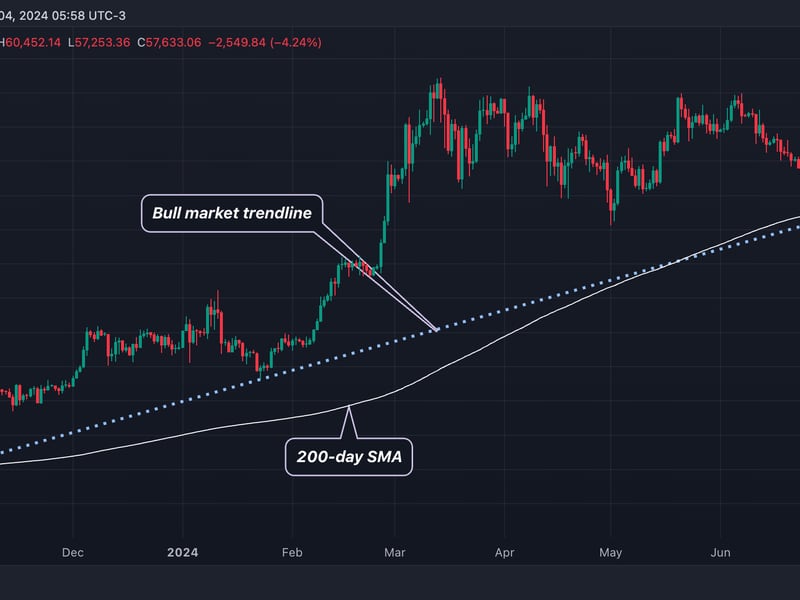Bitcoin dropped under $58,000 for the first time since May, marking a 5% loss in 24 hours.
Mt. Gox wallets, dormant for a month, showed activity with test transactions, hinting at potential asset distributions and increased selling pressure.
Bitcoin (BTC) plunged under $58,000 in European morning hours, extending 24-hour losses to nearly 5% and dropping to prices not seen since early May.
The sell-off came as wallets belonging to defunct crypto exchange Mt. Gox showed signs of activity for the first time in a month and the German Federal Criminal Police Office moved over $75 million to crypto exchanges.
“Among the top reasons for the price drop was the German government moving more than $50 million to crypto exchanges, creating sell speculation in the market,” Lucy Hu, a senior analyst at crypto investment firm Metalpha, said in a Telegram message.
Mt. Gox is scheduled to start distributing assets stolen from clients in a 2014 hack this month, although it is unclear when, after years of postponed deadlines. The repayments will be made in bitcoin and bitcoin cash (BCH) and could add selling pressure to both markets, as previously reported.
Wallets tracked by Arkham show Mt. Gox wallets conducted test transactions in during the Asian morning, moving a total of $25 worth of bitcoin across three transactions to different wallets.
Entities holding large amounts of tokens are known to move insignificant amounts between wallets before larger transfers – which may indicate an intention to sell.
Arkham data also showed the German entity moved $175 million in BTC to various wallets, $75 million of which was sent to crypto exchanges Kraken and Coinbase. Arkham CEO Miguel More previously told CoinDesk that transfers from a wallet to an exchange may indicate an intent to sell tokens.
Meanwhile, bitcoin has now fallen below a widely followed technical indicator for the first time since October, signaling a possible downtrend in the months ahead.

![[Action required] Your RSS.app Trial has Expired.](https://8v.com/info/wp-content/uploads/2026/01/rss-app-cfAqZL-75x75.png)









![[Action required] Your RSS.app Trial has Expired.](https://8v.com/info/wp-content/uploads/2026/01/rss-app-cfAqZL-350x250.png)










